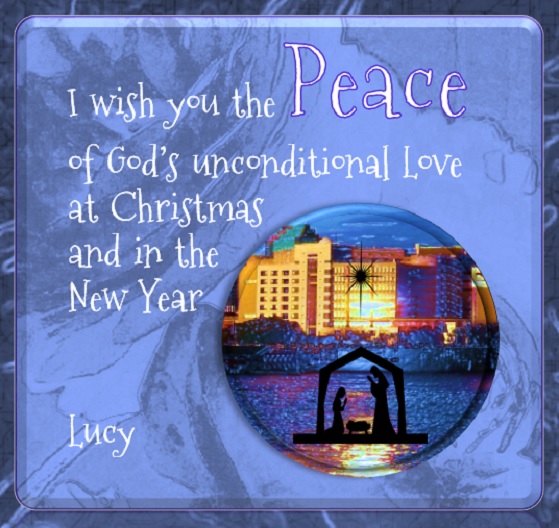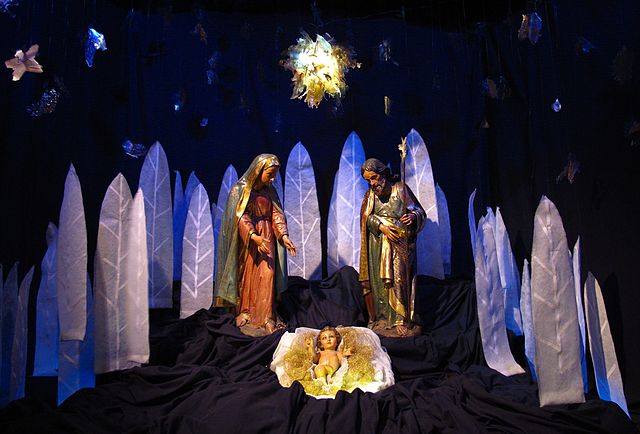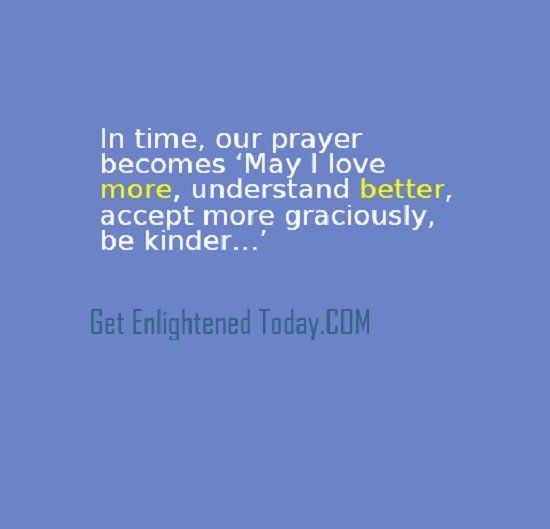The story of Christmas is an enthralling one especially when you hear it for the first time and especially if that first time was when you were a child. Most of us would have heard the Christmas story when we were very little children, perhaps even infants. And so, for years since, that story, while perhaps often forgotten, has remained part of our collective conceptual map of Christmas.
Photo by Elemaki at Wikimedia
As adults, we may doubt the accuracy or even the possibility of the story or at least some aspects of it such as the ‘immaculate conception’ of the Christ child. We may have even tried to replace the story with something more contemporary and pressing such as the humanitarian and ecological issues that we are experiencing and the related causes we champion. For instance, a card I received this Christmas has absolutely no reference to the Christmas story or its traditional themes of peace and joy and love. Instead, beneath the image of a child from some so-called ‘third world’ country, its message was a pithy ‘Make water safe’.
Does it have anything to do with Christmas? What do you think?
Meanwhile, there is another question that I feel inclined to ask: Does the story of Christmas have anything to do with the world today? My answer is both ‘No’ and ‘Yes’.
When I think of the obligatory/scheduled gift giving, the excessive food and fanfare and the frenzy and expense and stress that many people experience in their urge to fulfill the demands of this annual event, it feels so far removed from the Christmas story and its subterranean themes of purity, innocence, hope, simplicity and quiet triumph. Nor does it really reflect the larger themes of peace, joy and love.
In fact it has become ever more obvious to me that no amount of spending, consumption of food and drink and ‘celebration’ can quell the disquiet, fear, rage, guilt, violence (in thought, word and deed) or rebuke and rejection that some people experience (and direct at others) generally but perhaps even more so at this time of the year. And by the way, these too are themes within the Christmas story (Think Herod’s fear of competition, the inn-keepers’ rejection of non-paying guests, their anger and indignation towards the free-loaders etc). Unsurprisingly, many if not all of these themes are embedded in the stories that we construct about ourselves and others on the subjective ground of our judgments.
For instance, someone I have never met had reason to refuse to attend a Christmas event that we had both been invited to should I be present. Having judged me over some event in the past, the thought of being in my company was unacceptable to her. I reassured the friend who had invited us both that I would happily not attend. Meanwhile, it reminded me yet again of how such intolerance and the rage and indignation that it bleeds into the spirit of peace, love and joy that we ostensibly claim Christmas is about.
There are many, many more such instances of intolerance right across the planet and not just over the Christmas period either. Regardless, I still believe that universally, whatever kindness, acceptance and understanding is shown far outweighs the unkindness, judgment, blame and intolerance that is sadly so common and so frequent.
So, the question of whether Christmas means anything to our world today really comes down to this:
How much love do we allow and express in anything and everything we do?
‘Love’ is who and what and how we are not what we do or have or give.
From purchasing a gift to sitting down to Christmas lunch and being in the company of people we have chosen to be with or supporting the cause to ‘make water safe’, what is our intention? What is the energy that we bring into it? That is really the answer to whether Christmas means anything of value to our world today. Remember, ‘Love’ is who and what and how we are not what we do or have or give.
With our thoughts, we create the world – Buddha
Buddha said, ‘With our thoughts, we create the world’. Every experience that we have is a result of our thinking, our attitude, our intention and especially our judgments. This determines how much Love, which is Life, which is Truth, which is God, which is Infinite Intelligence, we allow into every situation we find ourselves in.
Judging others is one of the most poisonous things we can do and yet, we do it so readily, so automatically, so habitually. We even believe we have the right to judge. And clearly, we believe that we have monopoly over what is ‘right’ and ‘good’ and when others don’t comply with our standards and values, we believe we have the right to condemn, rebuke or reject them.
When we judge, not only do we ourselves feel the discomfort and dis-ease of our unfavourable judgments, we carry it with us into the situations we find ourselves in, thus preventing the natural flow of love within ourselves and between one another. I speak from personal experience of course. But I also know from my work that this is the cause of so much pain and suffering in others.
Have you judged anyone unfavourably recently? Are you still holding on to your unfavourable judgments of someone or something? If Christmas does signify peace, love and joy to you, then I invite you to release your judgments into the infinite and unconditional ocean of Love. When you do, you not only allow more Love, Peace and Joy within yourself, you allow them through all of life.
You know, you don’t have to judge in order to promote or support the values you believe in. In fact, you will have much more freedom, peace and joy when you simply move in the direction of what you love and believe to be good and true without directing anger and indignation toward the people and things that you perceive to be ‘wrong’ or ‘bad’ or ‘unjust’. Your anger, hatred, rejection and indignation are barriers to the natural flow of Love.
Rumi said,
Your task is not to seek for love, but merely to seek and find all the barriers within yourself that you have built against it.
Richard Rohr, a Franciscan friar, writes on this theme so beautifully:
The True Self—where you and God are one—does not choose to love as much as it is love itself already (see Colossians 3:3-4). The True Self does not teach us compassion as much as it is compassion. Loving from this core of your being is experienced as a river within you that flows of its own accord (see John 7:38-39). From this more spacious and grounded place, one naturally connects, empathizes, forgives, and loves everything. We were made in love, for love, and unto love. This deep inner “yes,” that is God in me, is already loving God through me. The false self does not really know how to love, in a very deep or broad way. It is too opportunistic. It is too small. It is too self-referential to be compassionate.
At this time of Christmas, as we draw closer to the end of one year and look to the beginning of another, I invite you to join me in allowing ourselves to be less judgmental and more compassionate not just towards those who share our beliefs and values but especially towards those whom we perceive don’t.
I invite you to join me in seeking to love more, understand better and accept more willingly. We can do this by noticing our thoughts and choosing and intending ones that allow Love to flow more freely into our relationships with ourselves and with one another.
I wish us all a beautiful and blessed Christmas and may our New Year be filled with the deep and enduring peace that is found in unconditional Love which is who and what we truly are!
 MENTORING
MENTORING
Let Life express itself intoxicatingly, uniquely, powerfully and limitlessly in, as and through you. Don’t settle, whatever your age. Know your true Self. Follow your Bliss. Live the Life that you know you want to! Contact me here.
MINDFULNESS ONLINE
Join me every week to sit in the presence of your true Self and experience the greatness of Life flowing naturally, effortlessly and powerfully in, as and through you!

